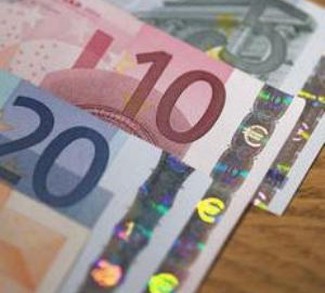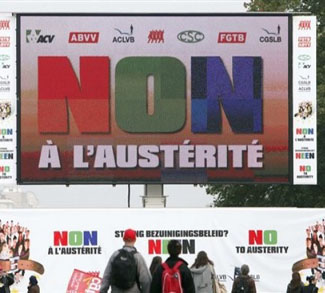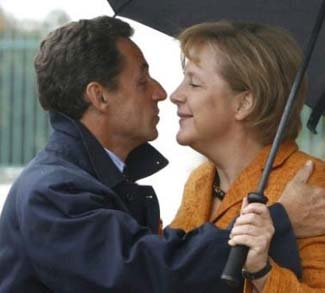While the EU’s center has held in the face of the far-right advance, the European elections notably confirmed the pre-vote predictions of its twin heavyweights. Less than two weeks earlier, French President Emmanuel Macron carried out Paris’s first state visit to Berlin in nearly a quarter-century, seeking to rekindle the Franco-German engine at the heart of European integration and urging Europeans to “wake up” to curb populism’s democratic threat. Although the far-right faired particularly well in both countries – prompting Macron to call a shock snap election – their leaders’ vision for Europe remains equally poignant.
In a joint Financial Times editorial, Macron and German Chancellor Olaf Scholz outline this European awakening, prescribing an enhanced Single Market paired with ramped up EU innovation and investment to bolster the bloc’s sovereignty amid rising geopolitical tensions and global competition. Encouragingly – given protectionism’s return to fashion – they avoid pitting competitiveness and trade against each other, calling instead for a ‘robust, open and sustainable” approach that “allows fair trade agreements and promotes EU interests.”
By leveraging an ambitious and coherent external economic agenda, including trade policy, the EU can fuel competitiveness, diversify supply chains and accelerate its twin green-digital transitions in a way that delivers for its citizens and SMEs, addresses the roots of populism’s resurgence, and supports the growth of Europe’s global partners.
Changing winds in Brussels
Encouragingly, this sentiment ran throughout a recent speech in Brussels by Sabine Weyand, Director-General of DG Trade at the European Commission. Yet maintaining a nuanced, constructive position on international trade will be no easy task in the new EU mandate.
Despite the center-right EPP’s better-than-anticipated performance at the ballot box, the European Parliament’s (EP) center of gravity is still shifting to the right, with centrist and liberal groupings losing influence to the European Conservatives and Reformists (ECR) group and others further to the right. Considering Marine Le Pen’s recent overture, the ECR could theoretically join forces with the far-right Identity and Democracy (ID), a political earthquake that could thwart Commission President Ursula von der Leyen’s manoeuvring to prop up a waning majority.
The elections’ top issues offer valuable insight into the roots of this changing balance of power, with EU citizens expressing the fight against poverty as their main electoral priority in the EP’s last Eurobarometer survey before the vote. After a years-long cost-of-living crisis fuelled by Covid-19 and the consequences of Russia’s invasion of Ukraine, Europeans are justifiably fed up with the status quo and looking for answers to their daily problems.
The return of European protectionism?
Following a time-tested playbook, Europe’s populist parties have successfully cashed in on public frustration and sentiments of abandonment by an out-of-touch elite. This battle has most notably played out in the agricultural arena, with the far-right surfing the wave of farmers’ protests, namely by scapegoating Brussels bureaucrats and the Green Deal agenda that has marked the outgoing term.
Desperate to hang on to the vital farming vote, the center-right has tried to outdo the far-right by sabotaging key Green Deal files, nearly managing to bury a watered-down Nature Restoration Law. What’s more, farmers’ anger over burdensome EU environmental regulations have been exacerbated by concerns over unfair competition from agricultural imports, leading to a mounting political demonization of ‘free trade.’
Beyond agriculture, the EU’s leading players are gathering together strategic industries spanning a range of clean energy and next-gen technologies under a ‘Europe First’ agenda – exemplified by Macron’s calls for a ‘Buy European’ strategy. As POLITICO has rightly observed, a right-leaning European Parliament could direct the bloc down a warped version of this path, potentially generating “conflicts…over an EU push to reduce dependency on other parts of the world,” and deepening the free trade backlash.
This may bring the EU into even greater conflict with its trading partners as it simultaneously seeks to foster international cooperation on sustainability through the TSD Chapters of its Free Trade Agreements and through its unilateral instruments such as CBAM and CSDDD.
Overcoming false dilemmas
This deeply polarized debate requires a heavy dose of nuance. European firms and policymakers have well-grounded fears over unfair competition from third countries not playing by the same rules, as well as excessive dependencies in the European bloc’s critical supply chains.
The EU must absolutely take measures to drive forwards its competitiveness and reindustrialization efforts, including by doubling down on investment in the domestic production of low-carbon energy and critical minerals. However, as Wind Europe’s Christoph Zipf recently noted, “Europe is not energy-rich like the U.S. and cannot afford to inhouse all manufacturing.”
Reminding that the bloc’s Net-Zero Industry Act includes a strong focus on diversifying suppliers rather than banning trade – in a similar fashion to the Critical Raw Materials Act – Zipf highlights that the EU will need to continue importing to deliver its green-digital transition. Europe must therefore avoid the false promise of protectionism, largely based on an ideological aversion to global trade and which threatens the EU’s long-term economic ambitions and resilience.
Brussels must instead advance a well-designed trade and investment strategy with European citizens and businesses at its the heart, securing the bloc’s supply chains and spurring growth in third-country partners. Any necessary de-risking measures will have inevitable costs to efficiency but that is the price to be paid to replace globally efficient but fragile supply chains with globally trusted ones.
Opportunities on the horizon
In this endeavor, the EU should look towards fast-growing markets with the values and assets needed for strong, balanced economic partnerships. The EU’s third-largest foreign trading partner, the Association of Southeast Asian Nations (ASEAN) already offers significant potential for expanded economic cooperation.
Recent years have seen strong progress in EU-ASEAN relations, with bilateral trade now exceeding €270 billion and Brussels sealing free trade deals with Vietnam and Singapore. More deals are in the works, with Thailand hoping to finalize an agreement with the EU by next year; previously stalled EU-Philippines talks set to resume in March; and critical mineral powerhouse Indonesia remaining optimistic about an agreement in the near future.
Moreover, both sides intend for these bilateral agreements to pave the way for an eventual EU-ASEAN free trade agreement, a development which European businesses consistently highlight as an essential element of optimizing trade and investment with and within ASEAN.
As well as striving for ambitious FTAs with a range of partners, the EU will also have to work hard to promote and protect the EU’s interests with its largest trading partners, including the US and China, which present different challenges.
Beyond trade, strategic EU investment projects, for example the Port of Lumut development in Perak, Malaysia and the digital economy package for the Philippines, provide promising avenues for deepening ties. Both initiatives notably fall under the EU’s Global Gateway strategy, through which Brussels has committed €10 billion for connectivity projects in ASEAN by 2027. Large amounts are also earmarked for other parts of the developing world. Encouragingly, both the EU and ASEAN recently bolstered their Global Gateway partnership, notably orienting investments towards mutual green and digital growth.
To maximize its impact moving forward, Brussels should implement a more coordinated Global Gateway approach, particularly by centralizing its administration, targeting strategic transport corridors and using it to coordinate other mechanisms like the Just Energy Transition Partnerships, already launched with Indonesia and Vietnam, which allow the EU to maintain high trade standards and protect domestic industries while fueling fair green growth overseas.
Through this proactive and coherent approach, the EU can drive resilient, sustainable growth across the bloc in the new term, restoring faith in its democracy while shielding its economic agenda from simplistic and misguided solutions.
The views expressed in this article belong to the author(s) alone and do not necessarily reflect those of Geopoliticalmonitor.com.




